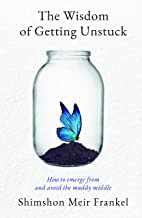Moving Forward, Onward, Upward Together
Last week we read in Nitzavim about standing in place and on this coming Shabbos we read about moving and transitioning in Vayelech. Are we ready to get up and move? I’m not talking about physical exercise, but rather spiritual growth, renewing ourselves from one year to the next. Vayelech [“And he went…”] represents our recognition of the power of moving “forward onward, upward together.” [Michael R. Mantell, Ph.D]
Moving Forward, Onward, Upward Together Read More »
Jewish Religion, Michael Mantell

